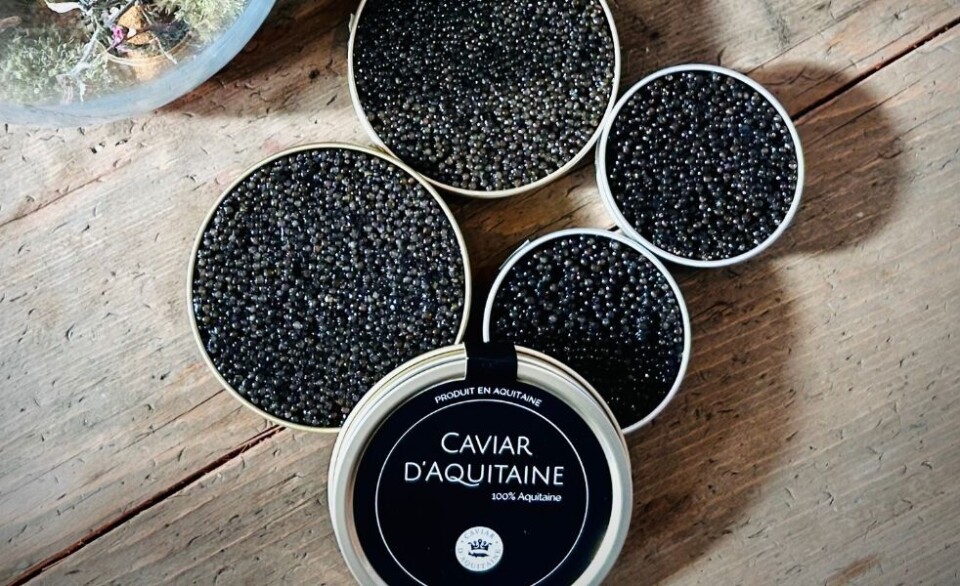
French sturgeon farmers opt for BioMar's more-sustainable feed
Four French caviar producers have become the first sturgeon farmers to adopt BioMar’s innovative Blue Impact feed and are now working with the Danish company to integrate the feed into their farming practices.
The four companies comprise the association Caviar d’Aquitaine which has built a global reputation for culinary excellence and decades of responsible sturgeon farming. The farmers' efforts are nearing official recognition through a Protected Geographical Indication (PGI) certification, which is in the final stages of approval.
BioMar said in a press release that its Blue Impact feed represents a significant step forward for Caviar d’Aquitaine. The feed reduces reliance on scarce marine resources, incorporates circular and restorative raw materials, and minimises the carbon footprint of feed production through responsible sourcing.
Optimal performance
It is designed to balance the environmental footprint of raw materials with the nutritional needs of aquaculture species, ensuring optimal performance. BioMar said this transformative approach supports sustainable farming practices while maintaining the exceptional quality that has made Caviar d’Aquitaine a globally respected name in caviar production.
The adoption of Blue Impact feed also includes rigorous monitoring to ensure compliance with animal welfare regulations and environmental standards, reinforcing consumer confidence and setting a new precedent for the future of aquaculture, added BioMar.
“We are thrilled to see Aquitaine Caviar become the first sturgeon farmers to adopt Blue Impact feed,” said Rocio Alvaro, sustainability lead at BioMar. “Their commitment to innovation and sustainability aligns perfectly with the goals of the Blue Impact initiative. Together, we are demonstrating that premium quality and environmental responsibility go hand in hand.”
Caviar d'Aquitaine comes from farms located in the south of the Gironde as well as along its estuary but also from the Arcachon Basin, the Isle basins in Dordogne and the Adour. The association’s four member companies are Caviar de France, Groupe Kaviar, Caviar Perlita, and Prunier Manufacture.
Blue Impact for salmon
Scottish salmon farmer Loch Duart has been using a bespoke version of Blue Impact feed for more than two years, during which it has set BioMar more difficult sustainability goals for the product.
The tailor-made version of BioMar’s Blue Impact feed maintains high omega-3 levels by using trimmings from fish caught for human consumption in certified fisheries, while at the same time reducing the company’s forage fish dependency ratio (FFDR) from 0.44 to 0.33. This means that for each kilo of fish caught for use in feed, Loch Duart produces 3 kg of salmon.























































